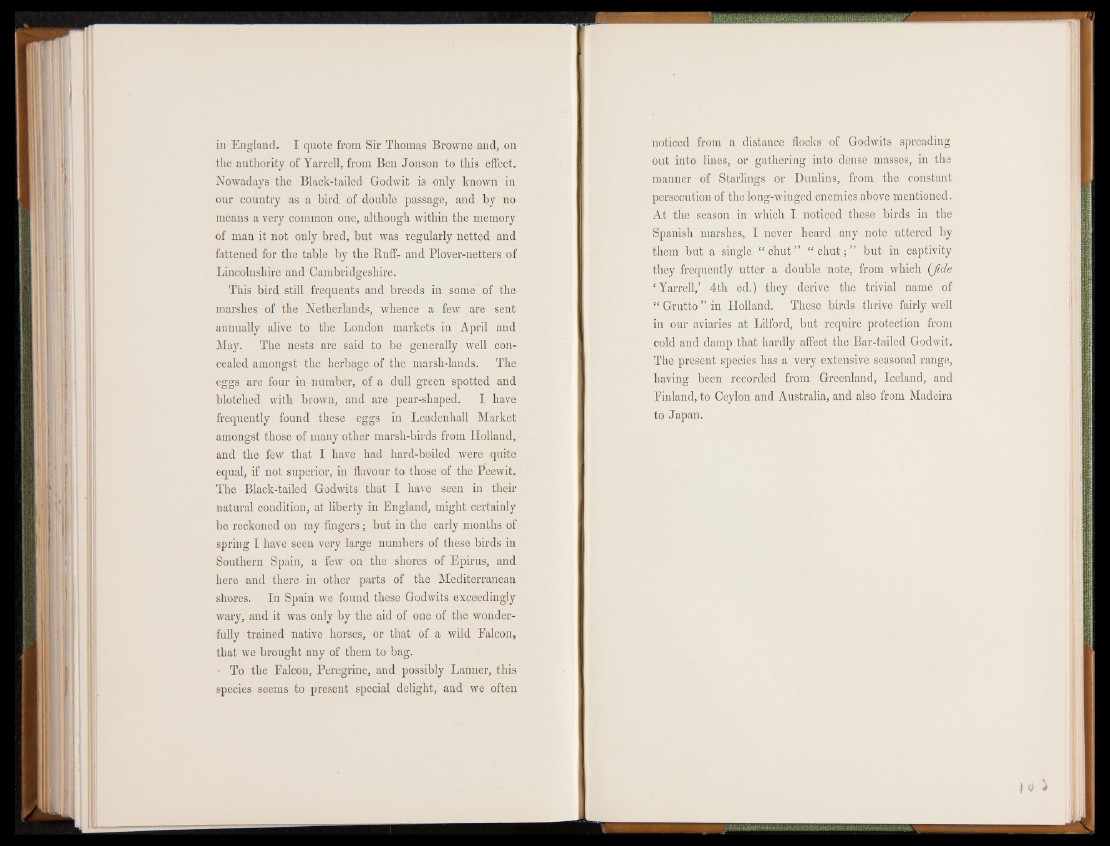
in England. I quote from Sir Thomas Browne and, on
the authority of Yarrell, from Ben Jonson to this effect.
Nowadays the Black-tailed Godwit is only known in
our country as a bird of double passage, and by no
means a very common one, although within the memory
of man it not only bred, but was regularly netted and
fattened for the table by the Ruff- and Plover-netters of
Lincolnshire and Cambridgeshire.
This bird still frequents and breeds in some of the
marshes of the Netherlands, whence a few are sent
annually alive to the London markets in April and
May. The nests are said to be generally well concealed
amongst the herbage of the marsh-lands. The
eggs are four in number, of a dull green spotted and
blotched with brown, and are pear-shaped. I have
frequently found these eggs in Leadenhall Market
amongst those of many other marsh-birds from Holland,
and the few that I have had hard-boiled were quite
equal, if not superior, in flavour to those of the Peewit.
The Black-tailed Godwits that I have seen in their
natural condition, at liberty in England, might certainly
be reckoned on my fingers; but in the early months of
spring I have seen very large numbers of these birds in
Southern Spain, a few on the shores of Epirus, and
here and there in other parts of the Mediterranean
shores. In Spain we found these Godwits exceedingly
wary, and it was only by the aid of one of the wonderfully
trained native horses, or that of a wild Falcon,
that we brought any of them to bag.
• To the Falcon, Peregrine, and possibly Lanner, this
species seems to present special delight, and we often
noticed from a distance flocks of Godwits spreading
out into lines, or gathering into dense masses, in the
manner of Starlings or Dunlins, from the constant
persecution of the long-winged enemies above mentioned.
At the season in which I noticed these birds in the
Spanish marshes, I never heard any note uttered by
them but a single “ chut” “ chut;” but in captivity
they frequently utter a double note, from which {fide
‘Yarrell,’ 4th ed.) they derive the trivial name of
“ Grutto ” in Holland. These birds thrive fairly well
in our aviaries at Lilford, but require protection from
cold and damp that hardly affect the Bar-tailed Godwit.
The present species has a very extensive seasonal range,
having been recorded from Greenland, Iceland, and
Finland, to Ceylon and Australia, and also from Madeira
to Japan.